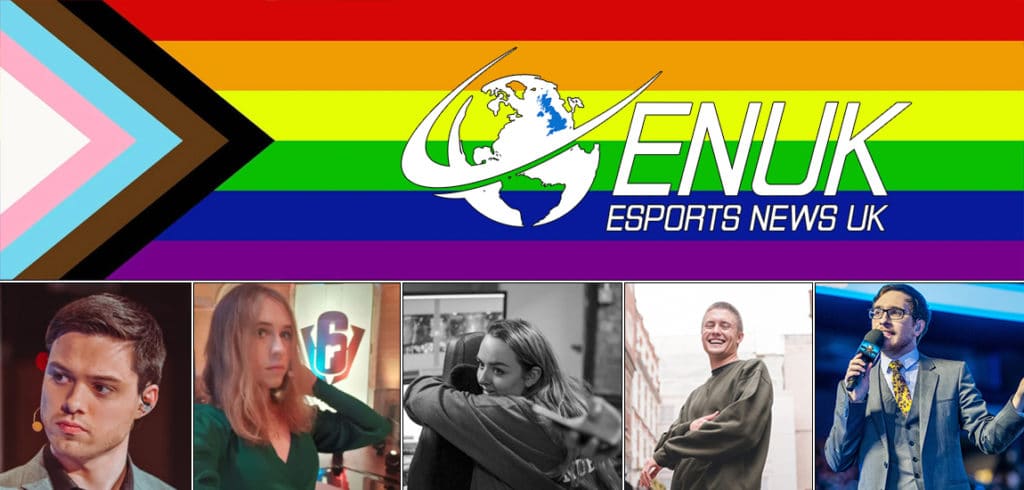June is Pride Month, and industries across the world have been celebrating initiatives and individuals to mark the occasion, including esports. It’s fair to say that the esports and gaming industry, like others, has at times divided opinion with the LGBTQIA+ community – and also the wider community.
Megalodontus speaks to five members of the UK & Ireland esports community on what their experiences are, LGBTQIA+ representation and how companies or brands can do better.
Foreword by Megalodontus
To be of a marginalised group is not easy. In general, even if you are sometimes surrounded by comfortable company, you might still feel ostracised in a way. There is also the conversation about not being within familiar spaces and how people deal with discrimination that so often comes with being part of a marginalised group.
The answer, for me, is never “just grow a thicker skin and shut up”. Growing a thick skin is the practical adaptation in the face of constant adversity, a by-product of being at the receiving end. To encourage the victim to ignore what people say and keep quiet about it only exacerbates the issue and emboldens abusers. Difficult conversations are often the ones worth having, and Pride Month is no exception.
Perhaps, things could be looking up in recent times. Companies in esports and gaming have at times divided opinion with their actions around representation, and to be fair to some of them, there could be repercussions due to their gargantuan reach worldwide and the number of people they reach.
This year, some companies have put the LGBTQIA+ flag on their socials as usual, and Riot has also been publishing stories around the game’s lore, like this one involving in-game champions Diana and Leona.
As with topics like these, conclusions are rarely – if ever – black and white. So instead of talking to just one person, I reached out to five individuals to talk about their experiences. Here are their thoughts.
‘Esports has a chance to be better. It seems lazy to point at other spaces and say we tried as hard as they did. Well, try harder.’
Tadhg ‘CelticTiger’ Brennan, freelance esports commentator and analyst
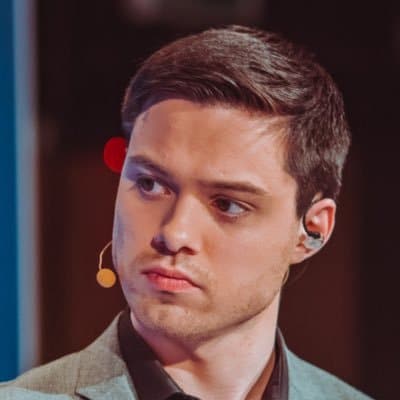
“My experience has varied a bit over the years. As a caster, most bigotry I’ve seen has been through chat responses to me. There’s obviously the issue of the gaming space being generally unaccepting of others, and there’s always that underlying feeling when passed over for work of whether I was simply not chosen for what I bring to the table, or for being considered too controversial. I’d hope its the former.
I still remember making the conscious choice to be willing to mention my boyfriend in a cast, and the chat reaction to that being heavily mixed. Thankfully, it did seem to progress over the course of my career and during my latest international appearance, responses to such things were distinctly positive which is nice.
On the work side of things, anyone who knows me will know that I tend to make a conscious choice to make my LGBTQIA+ status clear, donning a rainbow bowtie and suspenders when I can. I also remember being told later by a co-worker that a producer had been worried about allowing me on in rainbow clothing. Nothing mentioned to me of course, probably realising how it sounded, but my concerns about production decisions remain firm with small snippets like this.
In a similar vein, I was once told that a co-worker had to be warned not to say slurs, especially around me. And instead of being removed on the spot, they simply continued on with that warning. I can’t exactly call someone out for something I never saw myself, but the fact that it was considered something to be hidden from me, concerns me greatly. I guess my experience leaves me somewhat jaded but hopeful that progress is coming.
I think LGBTQIA+ representation is honestly pretty atrocious in esports right now. That is to say, LGBTQIA+ people both among players and casters seem incredibly sparse. People like to note that it’s simply a reflection of all media industries, as you’ll see the same across many sports. However, esports as a newer industry has a chance to be better and to me it seems lazy to just point at what other spaces do and say we tried as hard as they did. Well, try harder.
To me, the reasons for less representation in the communities are relatively obvious. There’s clearly going to be fewer LGBTQIA+ people in communities where bigotry is accepted. And online gaming communities, especially competitive ones, aren’t known for their progressive approaches. I’d imagine there are likely many LGBTQIA+ players who don’t come out for fear of the community’s reaction. I purposefully didn’t come out in my all-boys secondary school because I knew it would at least cause awkwardness. I can’t imagine a gaming house being a much better space for it. Hopefully I’m wrong.
Now, I’m incredibly happy with those who are the exceptions here: SonicFox blazing a trail as a player over in fighting games, Froskurinn having fought for better rep in LoL, and Fluke in Rainbow Six Siege has managed to be an excellent icon in that regard. It just shouldn’t have to be a battle for people to exist as who they are in these spaces.
Corporate pride is something of a divisive topic in the LGBTQIA+ community. My stance is that it’s simply reflective of public opinion changing. It is becoming more profitable to be seen as an ally, than it is to be seen as uncaring. This is a positive change.
“I’d imagine there are likely many LGBTQIA+ players who don’t come out for fear of the community’s reaction. I purposefully didn’t come out in my all-boys secondary school because I knew it would at least cause awkwardness. I can’t imagine a gaming house being a much better space for it. Hopefully I’m wrong.”
CelticTiger
However, I also understand critics who note many company’s approaches to this feel hollow. And I think its good to expect more, expecting more is what got us to this level of progress. For me, the best way for a company to get involved in Pride, is to put their money where their mouth is. Even if a company is supporting Pride for selfish reasons, money going to LGBTQIA+ charities is a win. On top of this, I’d like to see companies actually advocate for LGBTQIA+ people using their resources.
I think that can be similar to things like this article, offering spaces for LGBTQIA+ people to speak out on topics important to them. And at the very least, companies should be consulting LGBTQIA+ people about their approach, internally or externally.
The best way for a company to help Pride and LGBTQIA+ people is to do so year round. Improve your representation, take a more active stance against bigotry in communities you foster, support LGBTQIA+ charities more than once a year. It comes across a lot more genuine when the rainbows don’t just come out on June 1st to be quickly snuffed out come July.”
“I think that, compared to a lot of other industries, we have a growing scene of acceptance. It may be tough to see because the gaming sphere and the online world can at times be toxic, but those few loud voices are steadily being drowned out.”
Emi ‘Fluke’ Donaldson, freelance Rainbow Six Siege caster

“My experience has generally been very good! I think existing as an LGBTQIA+ person in any space is going to bring its fair share of challenges, and there are definitely some unique to esports so I came into it expecting challenges when I came out.
But outside of those expected bouts of strife I’ve otherwise been very welcomed, both by my employers and colleagues behind the scenes, as well as the community itself generally at large. It’s often very reassuring because these decisions, to come out and to live more honestly, they are never settled by just the action. It takes time to grow to understand yourself, and the love helps remind me that it’s the right positive movement to make.
I think that, compared to a lot of other industries, we have a growing scene of acceptance. It may be tough to see because the gaming sphere and the online world can at times be toxic, but those few loud voices are steadily being drowned out. It’s always worth remembering that our industry compared to many others is young, and we are going through a rapid growth and transition. That comes with an explosion and over-extension on both sides.
“It’s a tricky dance for brands and corporations to judge who wears the rainbow for brownie points, and who makes brownies to fundraise for the rainbow. The cultural zeitgeist war means that often earnest attempts will still get slandered by voices that just want a fight.”
Fluke
Sure, there may not be a huge amount of LGBTQIA+ representation you can point to at tier-one at the minute, but a few years ago there wasn’t any at all. From my position, as someone who is here now to see the responses to my posts and existence, and the amount of up-and-coming LGBTQIA+ talent in our scene, I have a lot of hope for the future.
It’s a tricky dance for brands and corporations to judge who wears the rainbow for brownie points, and who makes brownies to fundraise for the rainbow. The cultural zeitgeist war means that often earnest attempts will still get slandered by voices that just want a fight.
For me, the golden rule is for a company to remember why the month exists, and to pay vast attention to not losing sight of that. Sure, you can wear a rainbow for a month, fundraise with something limited edition but you also have to make sure the morals you have for this month, you wear the whole year. LGBTQIA+ can’t take off after the month, we don’t disappear. Companies that pretend we do are the ones that paint the worst picture. It shouldn’t be about them, but on raising attention and battling injustice.”
“I think it’s easy to criticise companies for changing their logos to rainbow colours during the month of June. People will come out and scream ‘VIRTUE SIGNALLING!’ but contribute nothing else themselves during Pride Month.”
Natacha ‘Sunkern’ Jones, NUEL creative director & freelance esports broadcast producer
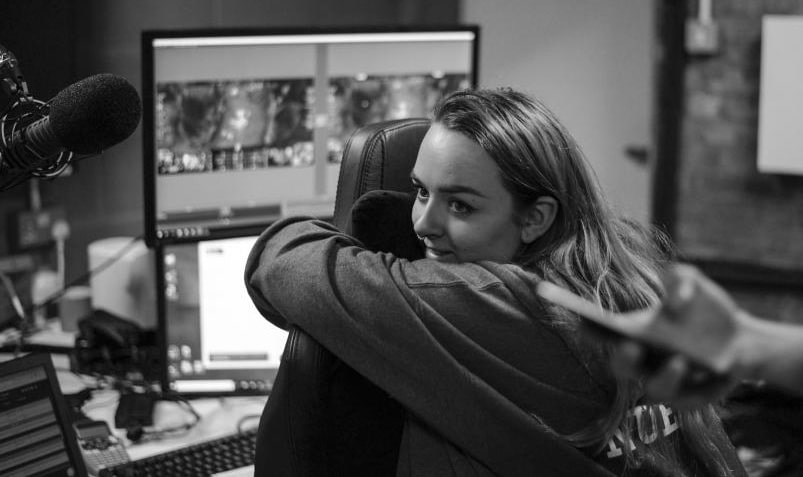
“I’m a genderqueer bisexual but I’m very much ‘cis/straight passing’, so I’ve not faced any discrimination or harassment due to my queerness in esports. I recognise that is a privilege that most others don’t have. I’ve faced more discrimination due to the fact I’m femme-presenting than anything else.
I think esports is making steady progress. Seeing people like JessGOAT, Fluke and Froskurinn on tier one broadcasts is amazing, and I think esports is ahead of traditional sports and TV in its on-air representation of LGBTQIA+ folks. Off-air, I feel like there’s less representation – we don’t see enough openly LGBTQIA+ people running esports companies or teams, speaking on panels or at conferences.
I think it’s easy to criticise companies for changing their logos to rainbow colours during the month of June. People will come out and scream “VIRTUE SIGNALLING!” but contribute nothing else themselves during Pride Month, when they could be putting their money where their mouths are and donate to a trans person’s surgery fund, and Froskurinn did a great video about this.
To be honest, it gives me a small boost of serotonin every time I see a company with a rainbow logo and obviously it shouldn’t stop with just a rainbow logo.
I want to see esports companies assessing who they’re hiring, who they’re promoting and who they’re putting on panels. If your panel has five cis-het white men on it, you should ask yourself why. Are they the only people you know with the expertise? Then you should probably get to know more people – BIPOC, LGBTQIA+ people, women, all of the above. Having a diverse range of people in your company or on your panel will bring new ideas and a new way of thinking that you might be missing.
“Having a diverse range of people in your company or on your panel will bring new ideas and a new way of thinking that you might be missing.”
Sunkern
I want to see esports companies put LGBTQIA+ inclusion policies in their employee handbooks. I want them to support, pay and promote LGBTQIA+ people in their company. I want them to pay equality, diversity and inclusion consultants like Amanda Stevens to help them understand what steps they need to take to make the workplace safe for minoritised folks.
I want them to moderate their Discords and Twitch chats and take a zero tolerance approach to homophobia and transphobia. I want management of esports companies to undergo LGBTQIA+ awareness & sensitivity training, which we did at NUEL. I want to see companies boosting the voices of LGBTQIA+ people, like ENUK are doing with this article ???? !”
“As an industry, we are very lucky to have so many powerful LGBTQIA+ figures in the community, however the vitriol many of them deal with is unacceptable.”
Alex Harris, head of marketing, London Esports
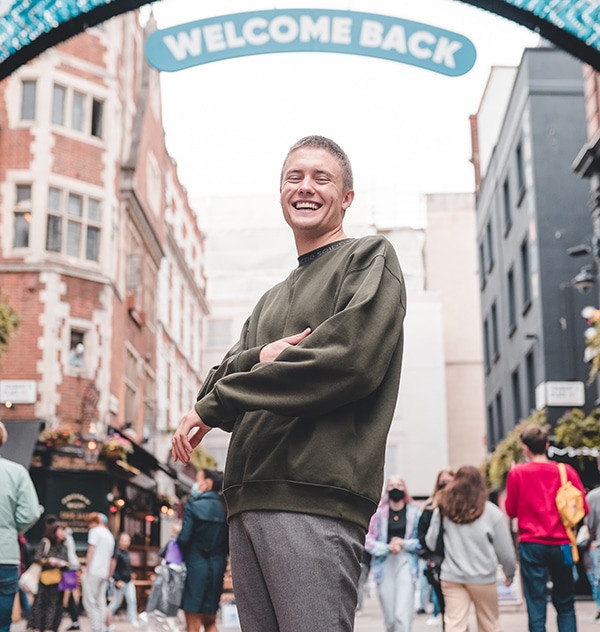
“It’s sad to say, but I would consider myself quite lucky, because I’m able to pass as a straight cis white man very easily. I didn’t talk about my sexuality or gender identity at all in the industry for many years and, to a certain extent, I still don’t.
It’s much easier to just hide it than attempt to have any sort of meaningful conversation on the topic, especially because I’ve seen how disingenuously many support pride and other social issues. I’ve seen businesses in the space support Black Lives Matter and Pride, and yet also support players and talent with vehement anti-black and homophobic attitudes.
I also really want to say that the LGBTQIA+ community is amazing and super resilient. I’m very lucky to have so many great memories from events during some very difficult times in my life. They made all the difference.
I think as an industry, we are very lucky to have so many powerful LGBTQIA+ figures in the community, however the vitriol many of them deal with is unacceptable. We need to get to a point where homophobia and transphobia in this industry is such a shameful act, such an ostracising political opinion, that the social capital losses from it outweigh any gains. Unfortunately we’re just not at that point yet.
There are some badass gay people doing badass gay things, but that’s more a credit to them, than to the industry or community as a whole. I also think it’s daft that nobody is talking about the intersectionality of many of the issues that esports faces.
It’s no coincidence that esports falls behind traditional start-ups on all fronts: race, gender, socio-economic capital, class, sexuality and so forth but at the same time, has rampant sexual assault cases. These issues are perpetuated by anything not straight, western white male being seen as ‘other’. It’s also no surprise that in an industry driven by cheap, passionate labour, that only those with the most privilege survive.
“If I was from a non-white, low income household, how on Earth was I supposed to live and work full-time on a few hundred quid a month, in the manner that I did at the start of my career? I was lucky that my parents could give me a place to live, but many don’t have that same privilege.”
Alex Harris
If I was from a non-white, low income household, how on Earth was I supposed to live and work full-time on a few hundred quid a month, in the manner that I did at the start of my career? I was lucky that my parents could give me a place to live, but many don’t have that same privilege. These issues are intersectional and it’s a shame so little is done to treat the root cause.
If companies and brands were actually proud, they would be doing pride 365 days a year. If they were actually proud, they’d create working environments that put LGBTQIA+ individuals in positions of power, with salaries that rival their straight counterparts. If they were actually proud, they’d strive to make a difference, not just sell rainbow t-shirts.
I love Ateyo as a brand and seeing two very cool women build a leading apparel brand is awesome, but they’re one of very few projects I’ve seen smash pride out of the park. For me personally, most of the projects I’m involved in have a strong social justice stance, but 99% of organisations and businesses in the space run exceptionally superficial activations for one month of the year, and harbour homophobic and transphobic talent for the other 11 months.
Given about 20-25% of the population is LGBTQIA+, that means most start-up businesses should have at least two or three directors and managers that are LGBTQIA+. In esports, you’ll rarely get one. I’d much rather we see more LGBTQIA+ people in positions of power, shaping businesses to be better in the long-run, than some sort of bullshit t-shirt.”
‘LGBTQIA+ people have existed forever, and will continue to exist, regardless of those who try to keep us hidden’
In a recent interview with James ‘Stress’ O’Leary, the former EU LCS caster and MAD Lions community manager shared some thoughts on LGBTQIA+ topics with Esports News UK as well.
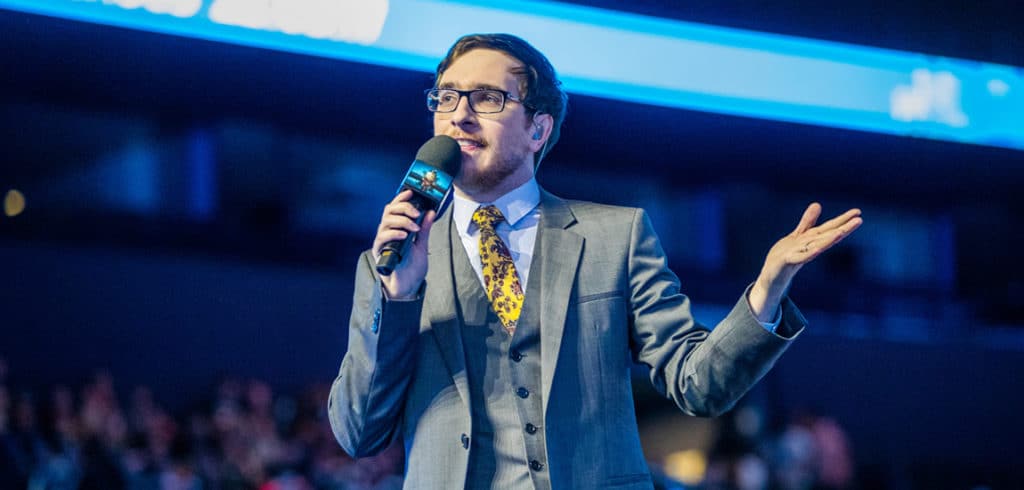
“It’d be a massive thing for a player to be openly LGBTQIA+, but with that comes a lot of pressure that they’d put on themselves, so it’s understandable why no European or LEC player to my knowledge has come out publicly.
There’s a big disagreement [on LGBTQIA+ representation and diversity] because some people lack the self awareness to realise that being angry about seeing someone who doesn’t represent them, is the kind of feeling that underrepresented people feel day to day. If you believe two guys kissing on a TV show is an attack on you, imagine what it feels like to have just about every TV show lack any meaningful gay characters.
The anti-diversity arguments have grown so venomous that it’s raised the temperature for everyone involved, and at the heart of it, those pushing for equality will be on the right side of history. LGBTQIA+ people have existed forever, and will continue to exist, regardless of those who try to keep us hidden.
It’s possible to be LGBTQIA+ positive for more than just pride. I think it can be difficult to come across as genuine regardless of if your intentions are sincere as a brand. It’s about consistency in actions both behind the scenes and when the world is looking, and many social media teams are overworked and underpaid to also take on those responsibilities when they’re already swamped.
Many decision makers in esports will tick the box of ‘doing pride’ because ‘they are supposed to,’ but most of them aren’t actually a part of the community it supports. Until those decision makers are represented, that’s not going to change.”
Related articles on representation and diversity
- Rainbow Six community reacts to first openly gay operator Flores: ‘Representation matters’
- MNM co-founder on Asian representation in esports: “I think the British Chinese have been really unrepresented, so it gives me more reason to choose what I’m putting into the MNM brand”
- Kripparrian and RegisKillbin give up Crossroads Inn-vitational slots to help make Hearthstone more diverse following debate around inclusivity and sexism
- UK Rainbow Six Siege caster Fluke speaks out on transphobic abuse
- 59% of women gamers say they adopt a non-gendered or male identity to avoid harassment while playing online
Megalodontus is a miraculous survivor from the mass extinction and somehow learnt how to use his stubby fins to operate complicated mechanical equipment and drink tea. Worryingly for cryptozoologists, he’s been writing League of Legends articles too.
A self-taught writer who’s had the privilege to work with good editors who aren’t terrified of his pearly whites, Megalodontus is often seen writing either independently or for various websites such as this one. When not writing, he usually runs it down mid in real life and is fascinated with watching paint dry.

